Understanding the Challenges and Triumphs of Mothers in Recovery
Mothers facing addiction recovery find themselves navigating a complex path fraught with challenges but also fueled by the powerful motivation to be present for their children. This dual role of parent and individual on a personal recovery journey poses unique pressures that intertwine with societal expectations, personal guilt, and the roadmap to sobriety. This article sheds light on the intricate connections between motherhood and recovery, offering insights into the struggles, strategies, and vital support systems that facilitate healing.
Facing the Complex Challenges of Recovery as a Mother
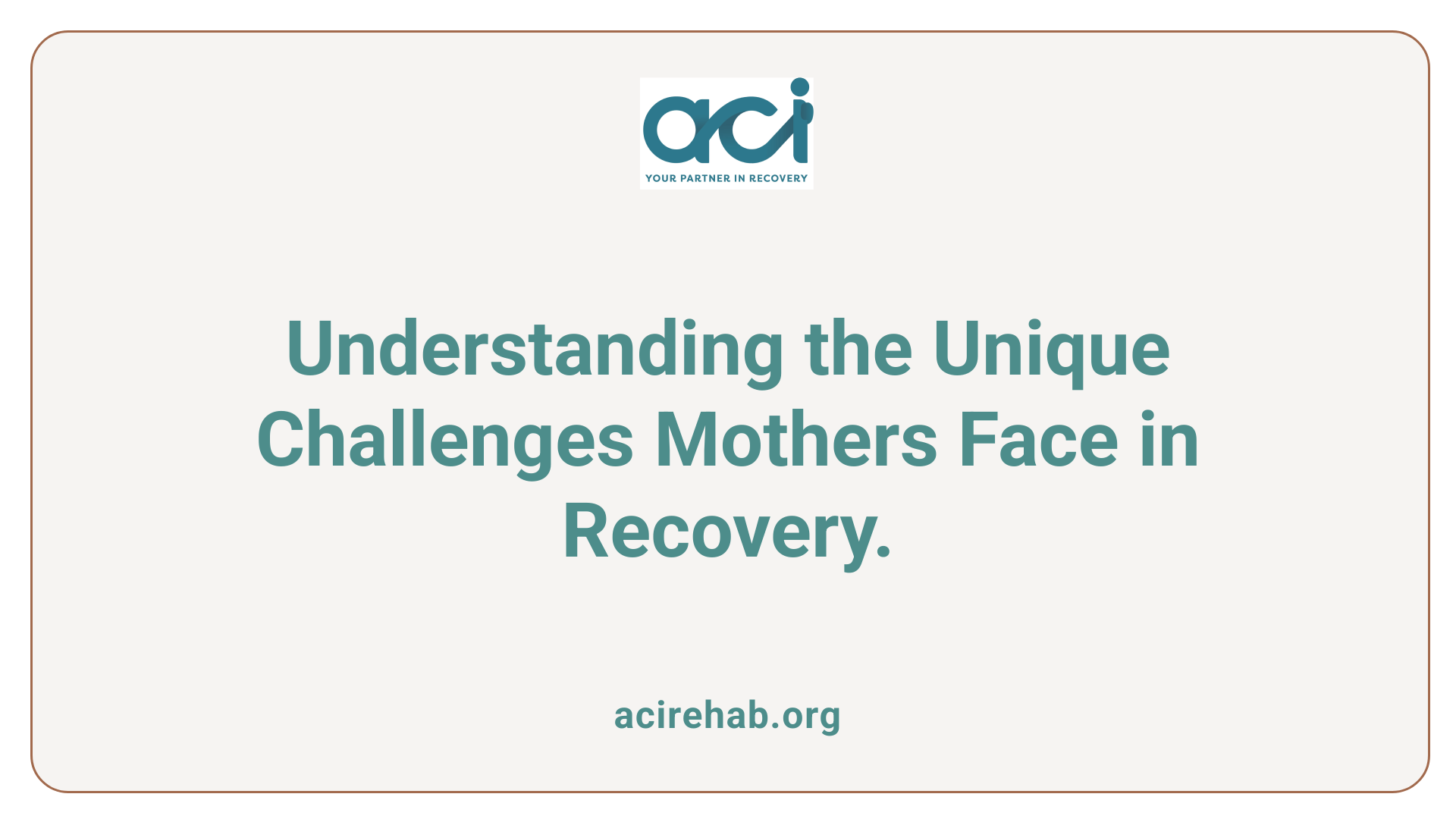
What are the challenges faced by mothers during addiction recovery?
Mothers in recovery from addiction encounter numerous challenges that complicate their journey. Emotional distress is prevalent, as many mothers grapple with societal stigma and judgment, which can undermine their self-worth and discourage them from seeking help.
Balancing the responsibilities of motherhood with recovery efforts presents a significant struggle. Feelings of guilt over past behaviors often lead to anxiety about the possibility of losing custody of their children. This fear can hinder their focus on recovery, as mothers may feel they have to hide their struggles instead of seeking help.
Additionally, problematic family relationships can create further stress. Without a robust support system, mothers may face isolation, exacerbating feelings of inadequacy. Access to supportive treatment programs that consider their unique needs, particularly those offering childcare, is crucial for fostering recovery and improving outcomes for mothers.
By prioritizing self-care and nurturing their mental health, mothers can better navigate the challenges of addiction recovery while functioning as effective caregivers.
Motivations and Obstacles: How Motherhood Shapes Recovery
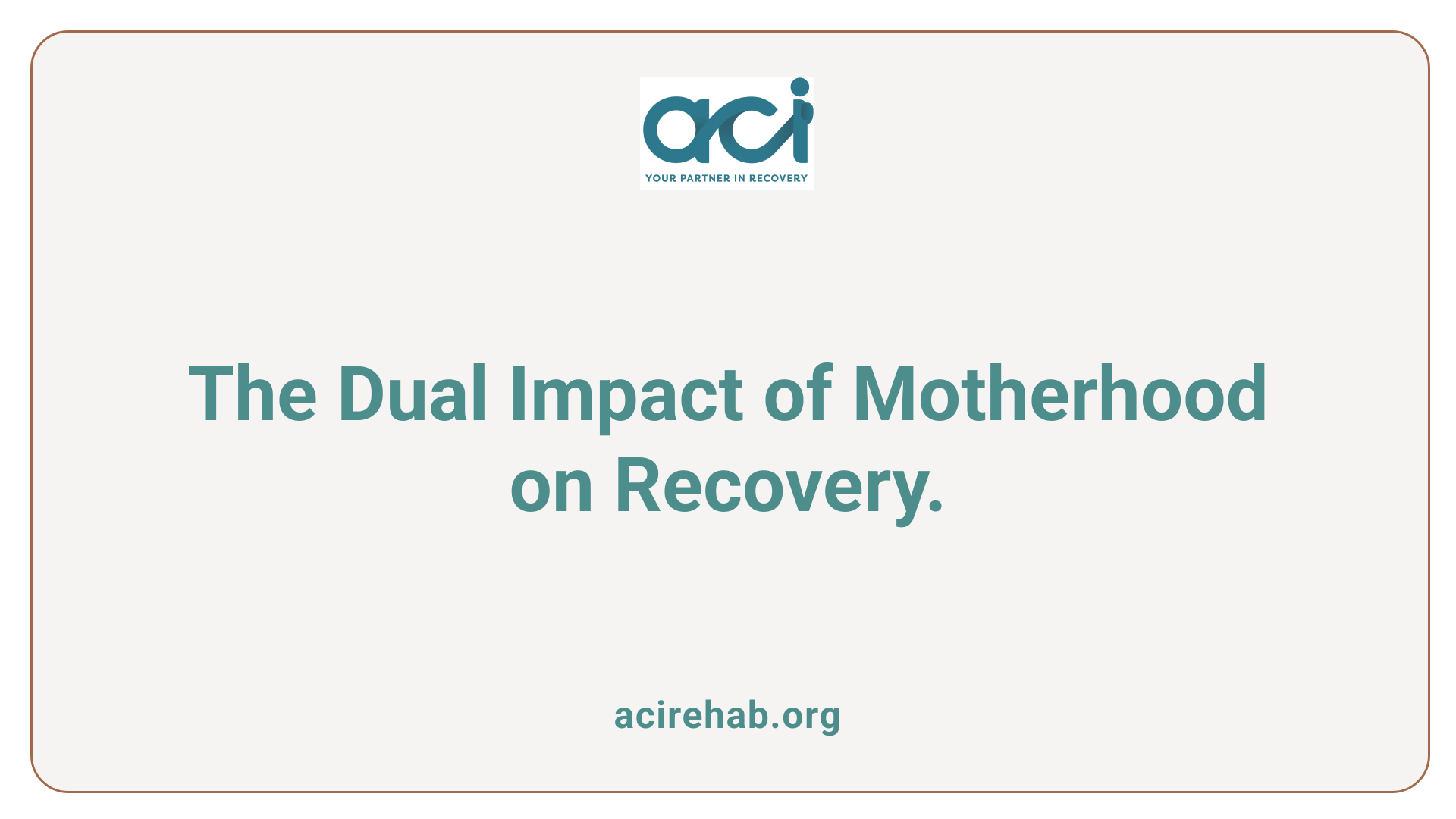
How does motherhood impact the journey to recovery from addiction?
Motherhood impacts the journey to recovery from addiction in complex ways, providing both motivation and additional stressors.
Many mothers draw strength from their love for their children, fueling their motivation to seek and maintain sobriety. This emotional connection can be a powerful catalyst for personal growth, as seen in recovery stories where mothers prioritize regaining custody and building healthier relationships with their children. However, alongside this motivation lies a dual burden.
Postpartum challenges
After childbirth, mothers may experience significant mental health challenges, such as postpartum depression, which further complicates recovery efforts.
The emotional and physical changes following childbirth can hinder a mother’s ability to focus on her own well-being. Guilt often surfaces when mothers feel they are not meeting societal expectations or providing adequate care for their children, leading to neglect of essential self-care practices that are crucial for preventing relapse.
Lack of support systems
The lack of comprehensive support systems can intensify these challenges.
Many mothers in recovery lack emotional support, which is vital in the journey toward sobriety. When isolated, feelings of shame and inadequacy can flourish, ultimately complicating the recovery process. Community support groups or family involvement can significantly enhance recovery outcomes by providing practical assistance and emotional backing.
Societal norms and self-care importance
Societal norms often perpetuate the myth of the "perfect mother," placing undue pressure on mothers to excel at both caregiving and recovery simultaneously.
Recognizing the importance of self-care is vital. Mothers who prioritize their mental and physical health are more likely to succeed in their recovery journeys. Practicing self-compassion, establishing daily routines, and seeking professional help can greatly aid mothers in managing their responsibilities while nurturing their well-being.
Essential Strategies for Balancing Parenting and Recovery
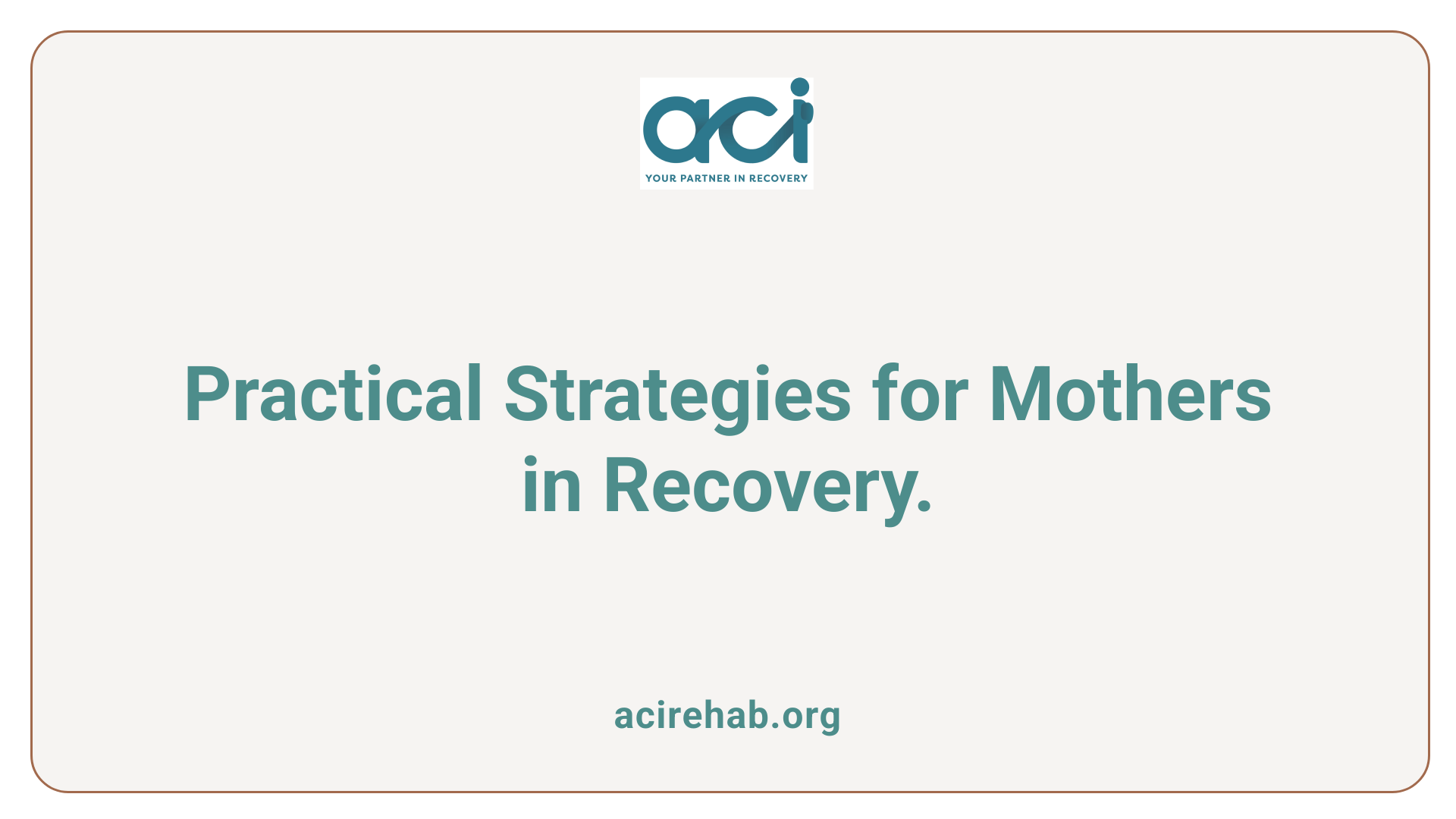
What strategies can help mothers balance parenting with their recovery needs?
Mothers balancing parenting with their recovery can employ several effective strategies.
-
Prioritize Self-Care
Engaging in activities like exercise, mindfulness, and proper nutrition supports both mental and physical well-being. Self-care helps mothers maintain their health, ultimately benefitting their children. -
Establish Daily Routines
Creating a daily routine that integrates recovery activities, such as therapy sessions and support groups, alongside family responsibilities can provide stability. This helps both mothers and children feel secure and organized. -
Open Communication
Maintaining open dialogues with children about the recovery journey fosters trust and understanding. It allows mothers to reassure their kids while modeling healthy emotional behaviors, setting a foundation for supportive relationships. -
Build Robust Support Networks
Establishing a solid network of family, friends, and professional counselors is crucial. This community can offer emotional and practical assistance, helping mothers navigate the demands of parenting while staying committed to their sobriety.
By implementing these strategies, mothers can create a balance that nurtures both their recovery and their family life.
The Crucial Role of Support in Motherhood Recovery
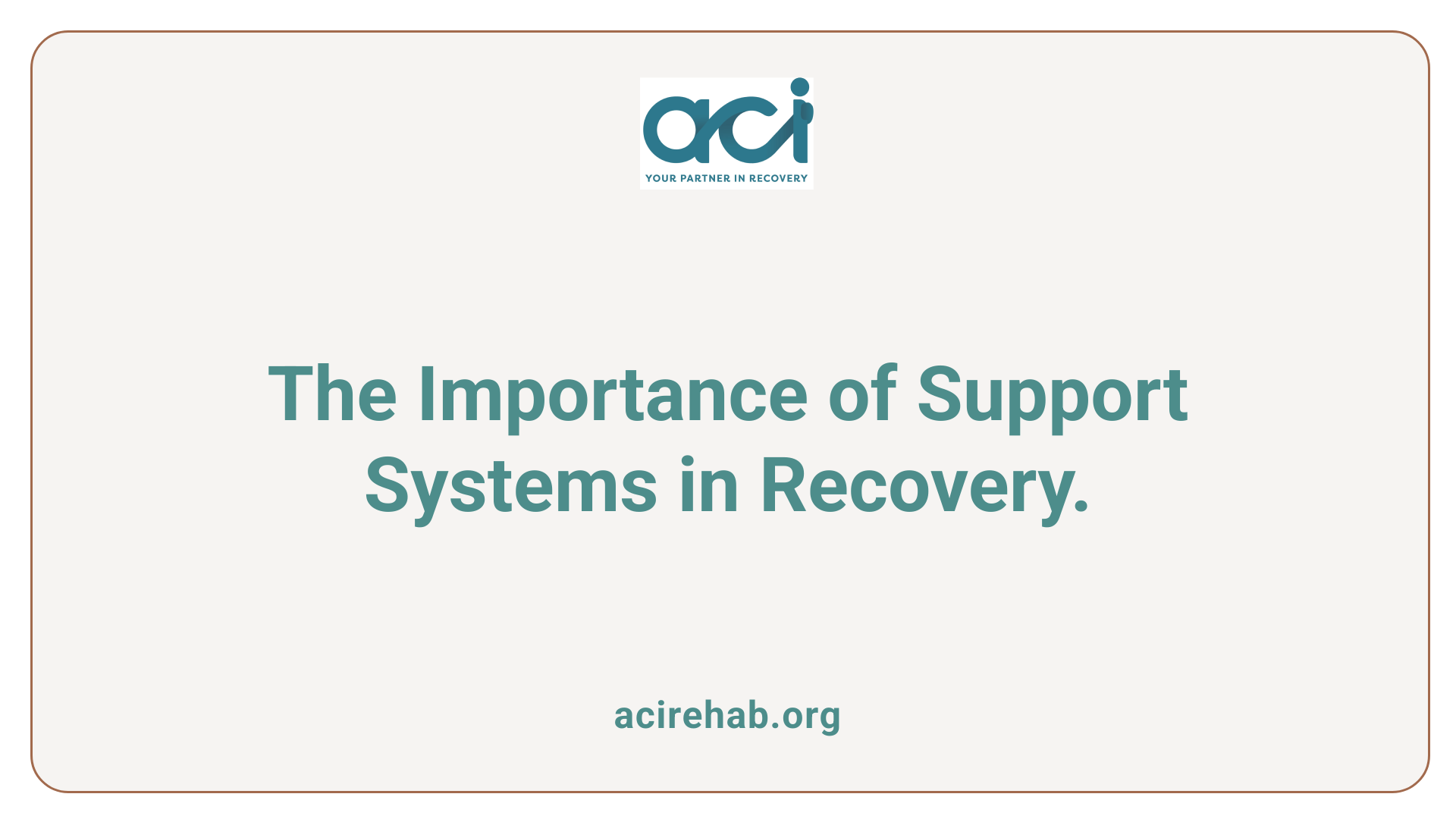
Why are support systems crucial for mothers in recovery?
Support systems are vital for mothers in recovery due to their dual role in offering emotional encouragement and practical assistance. Navigating the responsibilities of both recovery and parenting can be challenging, and having a solid support system significantly eases this burden.
One of the primary benefits of a support network is its impact on treatment retention. Research shows that mothers with higher levels of social support experience improved quality of life and lower stress levels during recovery. Family support acts as moral encouragement, fostering healthier home environments that can prevent relapse.
Additionally, engaging in peer support groups connects mothers with others who understand their unique struggles. This shared experience diminishes stigma and promotes a sense of accountability towards recovery goals. These relationships not only help mothers reclaim their lives but also improve ties with their children and families, reinforcing the overall recovery process.
Impact on recovery retention and success
Having a strong support system boosts recovery retention rates. Mothers in recovery often cite practical assistance, like help with childcare, as essential in managing their responsibilities. Family and peer support facilitate open discussions, encouraging mothers to share feelings of guilt and fear without judgment.
This communal approach not only enhances recovery outcomes but also imbues mothers with the resilience required to overcome the challenges of addiction while raising their children.
| Support Type | Benefits Granted | Impact on Recovery |
|---|---|---|
| Family Support | Emotional encouragement and practical assistance | Fosters healthier home environments |
| Peer Support Groups | Shared experiences, reduces stigma, promotes accountability | Increases treatment retention rates |
| Community Networks | Stability, understanding, and shared coping strategies | Enhances overall recovery success |
By prioritizing these support systems, mothers in recovery can significantly enhance their journey, leading to a more balanced life for both themselves and their children.
Strengthening Maternal Bonds Through Recovery
How can mothers rebuild relationships with their children during recovery?
Mothers in recovery can take proactive steps to rebuild their relationships with their children. Open and honest communication is fundamental; by discussing their past behaviors, mothers can help restore trust. This involves being transparent about the need for help and the journey through recovery, allowing children to process their feelings healthily.
Family therapy is another effective tool, creating a supportive space for all family members. Therapists can guide conversations and help family members express their emotions. This joint effort can significantly aid in re-establishing connections and addressing any lingering resentment or hurt.
Recognizing that each child’s response to recovery is unique is vital. Mothers should practice patience and acknowledge these varying reactions. Setting healthy boundaries can also foster a safe environment for children, promoting security and stability.
Continued participation in aftercare treatment underscores a commitment to sobriety, reinforcing the foundation for a healthier relationship. Encouraging children to share their feelings helps alleviate guilt and facilitates reconnection, reminding them they are not to blame for their parent’s struggles.
The Benefits of Specialized Treatment Programs for Mothers
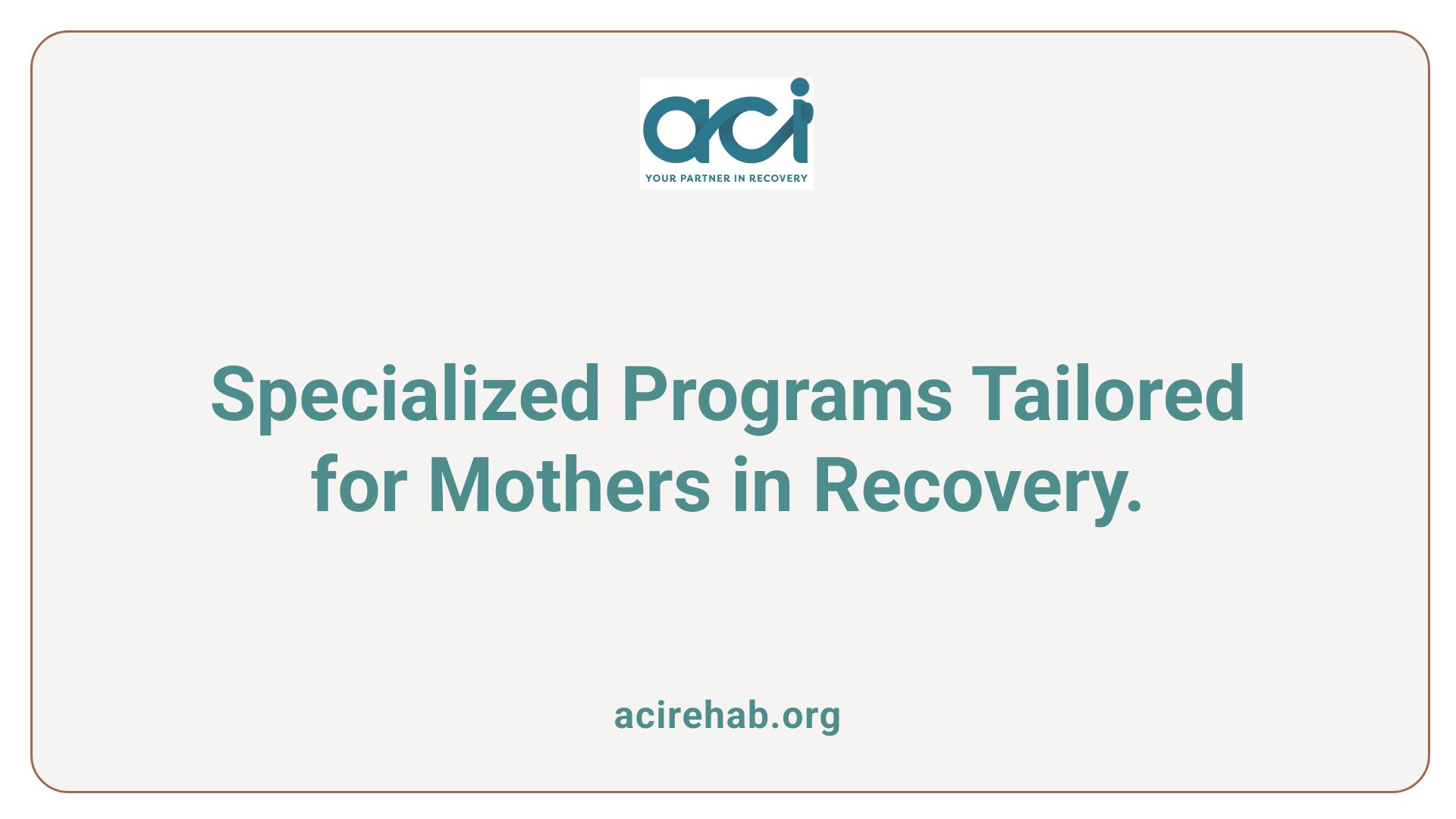
Are there specific treatment programs tailored to mothers with children?
Yes, there are specialized treatment programs tailored specifically for mothers with children, recognizing the unique challenges they face in balancing recovery and parenting. Programs like Crossroads’ CAMP allow mothers and their children under five to stay together, emphasizing family unity during recovery. These treatment options typically include childcare services, parenting education, and various therapeutic approaches such as cognitive-behavioral therapy and motivational interviewing.
Comprehensive approaches lead to better outcomes
Research shows that integrated programs address both substance use and parenting skills can lead to significantly better outcomes for mothers and their children. These outcomes include decreased substance use and improved parenting behaviors. For instance, holistic methods that combine relapse prevention with family therapy foster stronger connections between mothers and their children.
Services for physical and mental health needs
In addition to addressing addiction, specialized programs often provide services for physical and mental health needs, such as medication-assisted treatment and support for mental health issues like depression and PTSD. Programs like Moms in Recovery (MORE) focus on comprehensive health care, offering prenatal care and screening for infections, which are essential components of successful recovery and family well-being.
| Program | Key Services | Target Audience |
|---|---|---|
| CAMP (Crossroads) | Childcare, parenting education, therapy | Mothers with children under five |
| MORE | Prenatal care, mental health support, group therapy | Pregnant and parenting women |
| Outpatient Programs | Flexible treatment schedules, family-focused therapies | Mothers balancing caregiving and treatment |
Overall, these specialized programs are crucial for supporting the recovery of mothers while ensuring the well-being of their children.
Healing Journey: Recovery as a Continuous Process
Recovery in the context of motherhood is an ongoing journey, characterized by the intertwining of personal healing and the commitment to raising children. Understanding the multifaceted challenges faced by mothers and the solutions available is vital in supporting them through this process. While the path may be fraught with societal pressures and personal guilt, the rewards of rebuilding familial ties and creating a nurturing environment for their children cannot be underestimated. With appropriate support systems, effective strategies, and specialized treatment programs, mothers can transform their challenges into opportunities for growth, forging a resilient path that benefits both themselves and their families.
References
- Rebuilding after recovery: These mothers built back relationships …
- The Connection Between Recovery and Motherhood – Prescott House
- Balancing the Responsibilities of Motherhood and Addiction Recovery
- Moms in Recovery: Reclaiming Your Life and Your Children
- Balancing Recovery and Motherhood
- Navigating Motherhood and Addiction Recovery
- A Mother’s Guide to Powerful Parenting While in Recovery
- Helpful Tips for Moms in Recovery
- Recovery and Being a Good Mother | St. Joseph Institute for Addiction
- Prioritizing the Mother – Child Relationship During Recovery – DCCCA

